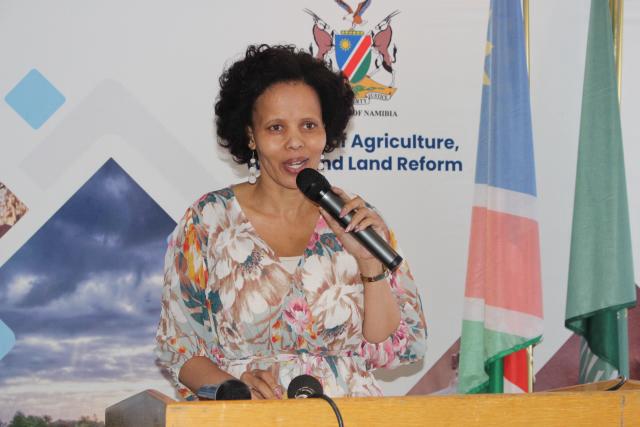Namibia’s top four education institutions pumped over 84 000 graduates into the labour market in the past five years – adding more pressure to create jobs in the failing economy.
Statistics from the University of Namibia (Unam), the Namibian University of Science and Technology (Nust) and vocational centres across the country indicate that Unam recorded 21 350 graduates, 14 111 graduated from Nust, while 37 975 passed through vocational training institutions.
Labour commentator Herbert Jauch told The Namibian yesterday it is likely most graduates from 2018 will not have worked during the past five years.
“In part, this is due to the Corona pandemic in 2020 and 2021, but mostly this is due to the economic structures which prevent the meaningful absorption of graduates into the labour market.”
Jauch said most struggle to find work in their field of study and are forced to look for other means of survival, which was a common pattern during the past five years.
The general labour environment was bleak during this time, with unemployment rising along with the number of insecure and poorly paid jobs.
Precarious employment conditions affected an increasing number of workers and wage increases were mostly below the inflation rate, meaning workers became poorer.
This is in stark contrast to the aim of creating decent work for all.
The topic of unemployment has taken centre stage in recent months, including a planned protest that was blocked by the police and court last month.
In March, about 2 000 unemployed youth from Windhoek applied for 16 positions at a restaurant.
Even president Hage Geingob brought up the issue of unemployment last month, warning that jobless youths could turn to terrorism.
Geingob promised the public the state would create about 2 800 jobs in the police, prisons and military.
However, several youth representatives said Geingob is attempting to paper over the cracks.
“That is a drop in the ocean when you look at the number of unemployed youths, which is very big, and also if you look at the unemployment rate of graduate teachers, which is more than the 2 800 he mentioned, so there is more that can be done,” said Students Union of Namibia president Bernard Kavau.
Young people are only being absorbed in the government’s security sector, which is not enough to address unemployment, Kavau said.
“We do not know why employment is limited to mainly [security] personnel,” he said.
“More could be done in the agricultural sector.
“Young people are frustrated and this frustration is not addressed properly,” he said.
Popular Democratic Movement parliamentarian Maximalliant Katjimune estimates that more than 300 000 young people are in need of jobs in Namibia.
“The creation of 2 800 jobs in the security apparatus for young people is a welcomed development but it’s just a drop in the ocean and won’t do much to alleviate youth unemployment,” he said.
“The president ought to have declared youth unemployment a state of emergency and put in place serious interventions to resolve youth unemployment in particular, and unemployment in general,” he said.
It is thus clear that resolving youth unemployment in particular and unemployment in general is not a key priority area for the government, Katjimune asserted.
He said the government needs to ensure young people are included in the mainstream economy.
At the moment it is virtually impossible for any young person, even those that secured jobs, to afford housing, for example. So, these are the issues that need urgent attention, he said.
THE BIG TWO
Unam and Nust are regarded as the cream of the crop in the training of graduates.
Unam’s 21 350 graduates from 2018 until 2022 include 10 390 teachers, economic and management (3 730) and 2 100 from the health sector.
Information from Unam spokesperson Simon Namesho shows that the agriculture and natural resources fields produced the lowest graduates, with only 672 graduates over the past five years.
Namesho said the university conducts a graduate survey that tracks the career paths of its graduates and holds networking events that provide a platform for alumni to connect and network with each other, as well as potential employers, to build their professional networks.
The 14 111 graduates from Nust are dominated by the management science field, which produced 5170 graduates from 2018 to 2022.
The field of human science came second, with 2 100 graduates, while computing and informatics ranked third, producing 1 330 graduates.
Nust spokesperson John Haufiku said the university has work integrated learning that ensures students get placed to gain practical skills, thereby increasing their chances of being employed.
“Other programmes that help students with employment preparation include the B360 initiative that has international professionals train students on what employers look for, as well as how to present themselves and be more employable,” Haufiku said.
Labour analyst Sydwill Scholtz estimates that Namibian higher education institutions are producing more graduates than the current market can accommodate, particularly in areas of specialisation, may already be saturated.
“There is a new market opening up in the green energy sector, which calls for young Nambians to specialise in. This should be explored by graduates.”
Scholtz added: “Our employment statistics have not recovered to pre-Covid levels yet and, therefore, the employing entities have designed creative ways of keeping production on an acceptable level with the lowest level of staff”.
What is concerning is the unemployed youth who do not have job experience, he said.
“Graduates need to find creative ways of generating employment and income for themselves. We are seeing more and more that the world is moving away from the traditional 08h00 to 17h00 employment set-up, to a more flexible based system where output is measured instead of hours worked,” Scholtz said.
VOCATIONAL
Vocational training institutions produced about 37 975 graduates from 2018 until 2021.
Namibia Training Authority (NTA) spokesperson Mornay Louw said NTA implements a wide range of activities focusing on self-employment and entrepreneurship.
“Entrepreneurship training to level three TVET graduates with specific business skills and knowledge [focuses] on how to start and successfully run a company through training and mentoring,” he said.
The NTA also focuses on institutionalising work on practical enterprise projects and activities, e.g. trainees running mini companies through incubation; Louw said the NTA also facilitates opportunities for vocational training graduates to do maintenance work at public institutions like schools, hospitals and on roads.
“Currently, trainees and graduates are carrying out renovation/construction projects on government facilities such as the construction/renovation of ablution facilities and classrooms at schools and the renovation of veterinary offices.”
AG RECOMMENDATION
In the report of the auditor general on youth unemployment of 2018/22, several recommendations to the ministry of sport were made, with only two recommendations implemented.
The auditor general recommended that the ministry should introduce standard curricula/manuals for all programmes offered at youth training centres to ensure the quality and recognition of qualifications obtained, and to enable trained youths to be on the same level across the country, which was not implemented.
The auditor general also suggested the ministry should send students for job attachments to gain practical experience to enable them to compete with youths from various institutions, which has been partially implemented.
The ministry should also develop a training policy that suits the training needs of instructors and youth officers to equip them with the necessary skills and knowledge, stated the report.
Stay informed with The Namibian – your source for credible journalism. Get in-depth reporting and opinions for
only N$85 a month. Invest in journalism, invest in democracy –
Subscribe Now!










